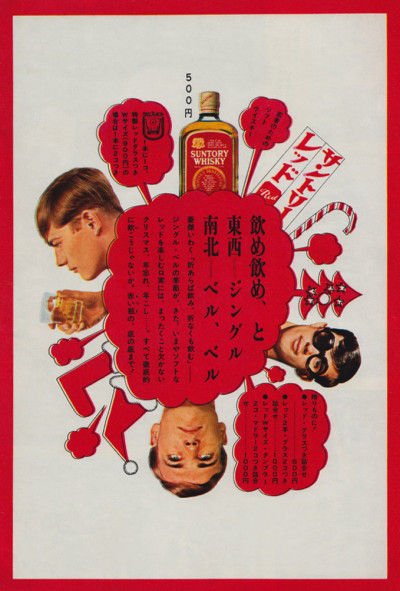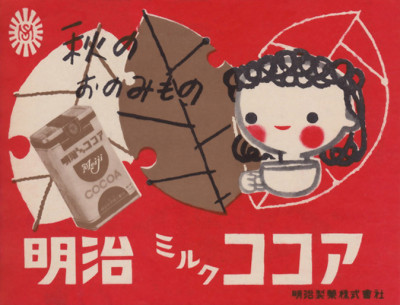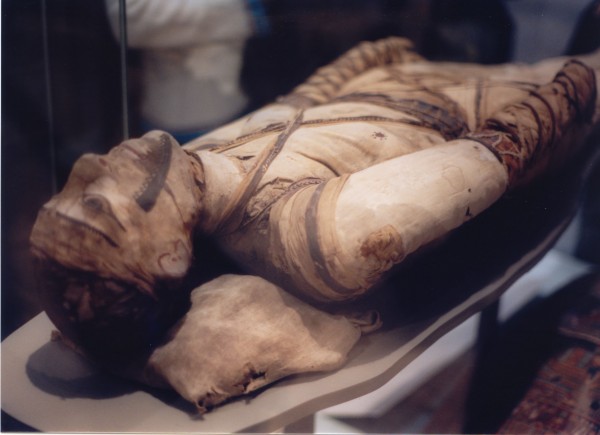With the goal of stirring up even more interest in Murakami between now and the next week (or two), when the Nobel Prizes are announced, I will post a small piece of Murakami translation/analysis/revelation once a week from now until the announcement. You can see past entries in the series here:
Year One: Boobs, The Wind, Baseball, Lederhosen, Eels, Monkeys, and Doves
Year Two: Hotel Lobby Oysters, Condoms, Spinning Around and Around, 街・町, The Town and Its Uncertain Wall, A Short Piece on the Elephant that Crushes Heineken Cans
Year Three: “The Town and Its Uncertain Wall” – Words and Weirs, The Library, Old Dreams, Saying Goodbye, Lastly
Year Four: More Drawers, Phone Calls, Metaphors, Eight-year-olds, dude, Ushikawa, Last Line
Year Five: Jurassic Sapporo, Gerry Mulligan, All Growns Up, Dance, Mountain Climbing
Year Six: Sex With Fat Women, Coffee With the Colonel, The Librarian, Old Man

Differences between the original and translation of Chapter 11 are apparent from the chapter title: in English, the title is “Dressing, Watermelon, Chaos” and the version in the Complete Works is 「着衣、混沌」. The 1985 version, which is「着衣、西瓜、混沌」, quickly shows that the changes here are being made by Murakami and not Birnbaum.
This was another short installment, so it was easy to locate those changes. In this chapter, the librarian gets dressed (very sensually, as Watashi admires from the corner of his eye) and then leaves with the library books after giving him her number. Watashi then preps for shuffling the data, explains the shuffling process, and starts shuffling.
Shuffling required scientists to extract the “core” of his consciousness in the form of a “drama.” The title of Watashi’s interior drama is “End of the World,” but they didn’t tell him anything about the drama. He just calls it up, putting himself in a dream state, shuffles the data, and then turns it off, remembering nothing after.
First I’ll look at the way that Birnbaum translated the 1985 version, and then I’ll show you what Murakami did differently in 1990. Without further ado, the 1985 version followed by its translation, which is very accurate and makes very few changes/cuts:
「それを知ることは君には不必要なのだ」と彼らは私に説明してくれた。「何故なら無意識性ほど正確なものはこの世にないからだ。ある程度の年齢——我々は用心深く計算してそれを二十八歳と設定しているわけだが——に達すると人間の意識の総体というものはまず変化しない。我々が一般に意識の変革と呼称しているものは、脳全体の働きからすればとるにたらない表層的な誤差にすぎない。だからこの〈世界の終わり〉という君の意識の核は、君が息をひきとるまで変わることなく正確に君の意識の核として機能するのだ。ここまではわかる?」
「わかります」と私は言った。
「あらゆる種類の理論・分析は、いわば短い針先で西瓜を分割しようとしているようなものだ。彼らは皮にしるしをつけることはできるが、果肉にまでは永遠に到達することはできない。だからこそ我々は皮と果肉とをはっきると分離しておく必要があるのだ。もっとも世間には皮ばかりかじって喜んでいるような変わった手合もいるがね」
「要するに」と彼らはつづけた。「我々は君のパス・ドラマを永遠に君自身の意識の表層的な揺り動かしから保護しておかなくてはならんのだ。もし我々が君に〈世界の終わり〉とはこうこうこういうものだと内容を教えてしまったとする。つまり西瓜の皮をむいてやるようなものだな。そうすると君は間違いなくそれをいじりまわして改変してしまうだろう。ここはこうした方が良いとか、ここにこれをつけ加えようとしたりするんだ。そしてそんなことをしてしまえば、そのパス・ドラマとしての普遍性はあっという間に消滅して、シャフリングが成立しなくなってしまう」
「だから我々は君の西瓜にぶ厚い皮を与えたわけだ」とべつの一人が言った。「君はそれをコールして呼びだすことができる。なぜならそれは要するに君自身であるわけだからな。しかし君はそれを知ることはできない。すべてはカオスの海の中で行われる。つまり君は手ぶらでカオスの海に潜り、手ぶらでそこからでてくるわけだ。私の言っていることはわかるかな?」
「わかると思います」と私は言った。
「もうひとつの問題はこういうことだ」と彼らは言った。「人は自らの意識の核を明確に知るべきだろうか?」
「わかりません」と私は答えた。
「我々にもわからない」と彼らは言った。「これはいわば科学を超えた問題だな。ロス・アラモスで原爆を開発した科学者たちがぶちあたったのと同種の問題だ」
「たぶんロス・アラモスよりはもっと重大な問題だな」と一人が言った。「経験的に言って、そう結論せざるを得ないんだ。そんなわけで、これはある意味ではきわめて危険な実験であるとも言える」
「実験?」と私は言った。
「実験」と彼らは言った。「それ以上のことを君に教えるわけにはいかないんだ。申しわけないが」
*
それから彼らは私にシャッフルの方法を教えてくれた。一人きりでやること、夜中にやること、満腹状態でもなく空腹でもないこと。
“There is no need for you to know more. The unconscious goes about its business better than you’ll ever be able to. After a certain age—our calculations put it at twenty-eight years—human beings rarely experience alterations in the overall configuration of their consciousness. What is commonly referred to as self-improvement or conscious change hardly even scratches the surface. Your ‘End of the World’ core consciousness will continue to function, unaffected, until you take your last breath. Understand this far?”
“I understand,” I said.
“All efforts of reason and analysis are, in a word, like trying to slice through a watermelon with sewing needles. They may leave marks on the outer rind, but the fruity pulp will remain perpetually out of reach. Hence, we separate the rind from the pulp. Of course, there are idle souls out there who seem to enjoy just nibbling away on the rind.
“In view of all contingencies,” they went on, “we must protect your password-drama, isolating it from any superficial turbulence, the tides of your outer consciousness. Suppose we were to say to you, your End of the World is inhered with such, such, and such elements. It would be like peeling away the rind of the watermelon for you. The temptation would be irresistible: you would stick your fingers into the pulp and muck it up. And in no time, the hermetic extractability of our password-drama would be forfeited. Poof! You would no longer be able to shuffle.”
“That’s why we’re giving you back your watermelon with an extra thick rind,” one scientist interjected. “You can call up the drama, because it is your own self, after all. But you can never know its contents. It transpires in a sea of chaos into which you submerge empty-handed and from which you resurface empty-handed. Do you follow?”
“I believe so,” I said.
“One more point,” they intoned in solemn chorus. “Properly speaking, should any individual ever have exact, clear knowledge of his own core consciousness?”
“I wouldn’t know,” I said.
“Nor would we,” said the scientists. “Such questions are, as they say, beyond science. [They are the same questions the scientists at Los Alamos ran into.]”
“[They might even be more important than the problems at Los Alamos.] Speaking from experience, we cannot conclude otherwise,” admitted one. “So in this sense, this is an extremely sensitive experiment.”
“Experiment?” I recoiled.
“Yes, experiment,” echoed the chorus. “We cannot tell you any more than this.”
Then they instructed me on how to shuffle: Do it alone, preferably at night, on neither a full nor empty stomach. …
As you can see, Birnbaum’s translation is quite accurate. He cuts the space break, and yes, he’s colorful here and there, notably with the “Poof!” but there’s really not much to complain about. The only lines he cuts completely are those referring to the development of the atom bomb by scientists in Los Alamos (which I’ve bolded in Japanese and bolded/bracketed in English).
The one thing worth noting is that Birnbaum’s translation makes the text slightly more Kafkaesque than the original. Murakami uses 彼ら (they) as a speaker tag in the original, and he occasionally picks out a single scientist to interrupt this plural subject, but in translation Birnbaum decides to be more explicit and dramatic by translating this as “they intoned in solemn chorus.” I really like this rendering. It adds a hint of fear to the proceedings, which is reflected in the Japanese dialogue in the way that the dialogue mirrors the dialogue of the old man/scientist/grandpa slightly with its んだs and がねs: these scientists are just a little off, and Birnbaum hints at that nicely with the ornamented speaker tag.
In the Complete Works version, this is how the passage looks:
「それを知ることは君には不必要なのだ」と彼らは私に説明してくれた。「君はそれを必要に応じてコールして呼びだすことができる。なぜならその〈世界の終わり〉というパス・ドラマは要するに君自身であるわけだからな。しかし君はその内容を知ることはできない。すべてはカオスの海の中で行われる。つまり君は手ぶらでカオスの海に潜り、手ぶらでそこからでてくるわけだ。私の言っていることはわかるかな?」
「わかると思います」と私は言った。
それから彼らは私にシャッフルの方法を教えてくれた。一人きりでやること、夜中にやること、満腹状態でもなく空腹でもないこと。
“There is no need for you to know more. You can call up the drama, because it is your own self, after all. But you can never know its contents. It transpires in a sea of chaos into which you submerge empty-handed and from which you resurface empty-handed. Do you follow?”
“I believe so,” I said.
Then they instructed me on how to shuffle: Do it alone, preferably at night, on neither a full nor empty stomach. …
Significantly shorter. All the sections about the development of the conscious mind are gone. So is the watermelon metaphor. As is the ominous question SHOULD WE HAVE TRUE SELF KNOWLEDGE.
I really don’t like these cuts and I’m not sure what Murakami was going for. It feels like he sterilized the text to a certain extent, maybe to speed it up, maybe because he didn’t feel like the section ties in with the main themes of the book. There’s no question that the result is less funny, although I have to admit that Birnbaum’s translation probably makes it sillier than the original. Still, the “Experiment?!” line on its own is pretty funny, and it gets cut.
Which makes me wonder if that’s why Murakami cut it – not because it was funny but because it might ruin the believability of the plot a little. If Watashi had some idea that shuffling wasn’t anything more than a complex experiment poking around in his melon, as it were, would he really have participated? We know he’s a pretty easy-going “for convenience-sake” kind of guy – this has been well established since the very first chapter, which also introduced watermelon as a metaphor for his brain – but even he has his limits. Maybe that’s what Murakami was going after here.
Thus concludes Murakami Fest 2013! The Nobel Committee has not yet revealed the date of the Literature announcement, but it will likely be at some point next week or the week after, in the middle of the other prize announcements. I’ll probably continue to read Hard-boiled Wonderland and the End of the World, so check back for more blog posts.









